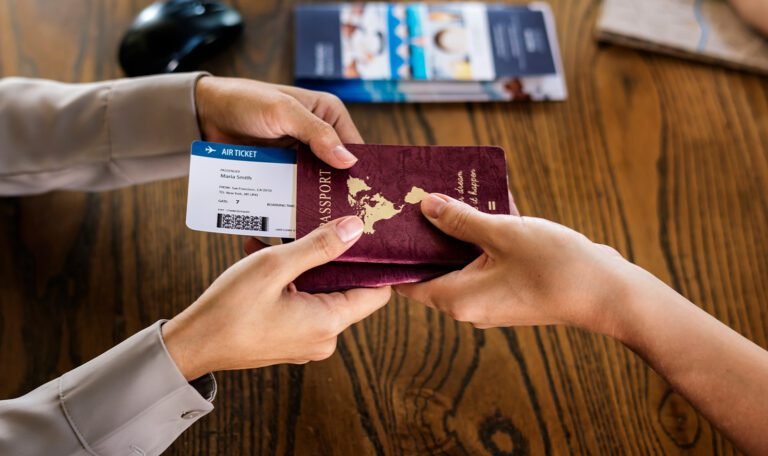Table of Contents
ToggleIndividuals are considered tax residents in Indonesia if they are engaging in business, freelance endeavors, or earning income surpassing the Non Taxable Income threshold. They have to register their NPWP (Tax card) in order to report their tax annually between 1st January and 30 March. Married persons meeting their tax obligations independently from their spouses have to obtain an NPWP at the tax office.
Generally, tax residents are liable for taxes on their global income, but with the implementation of double taxation agreements (DTAs), these obligations can be waved for those who have income from working on their own behalf, such as working remotely.
The provision under the Income Tax Law Nomor 18/PMKc03/2021, specifying that foreign individuals transitioning to tax residency in Indonesia may be taxed solely on income sourced within Indonesia (even if received offshore) for 4 years. In other words foreigners can apply for the territoriality for 4 years before being tax on their worldwide income. It’s important to note that this territorial taxation system may not apply if a foreign individual receives income from overseas and utilises the relevant tax treaty between Indonesia and the source country to avoid taxation on both sides.
Who pay personal income tax in Indonesia?
An individual is an Indonesian tax resident if the person:
- Resides in Indonesia
- Resides in Indonesia for 183 days or more in any twelve-month period
- Presents and intends to reside in Indonesia (this option is more rarely applied)
For non-resident individuals, a general withholding tax (WHT) of 20% is imposed on their Indonesian-sourced income. However, concessions are available in the presence of an active DTA.
TAXABLE INCOME IN INDONESIA
| Taxable income for 2023 (IDR) | Tax rate (%) |
| Up to IDR 60 million | 5 |
| Above IDR 60 million to IDR 250 million | 15 |
| Above IDR 250 million to IDR 500 million | 25 |
| Above IDR 500 million to IDR 5 billion | 30 |
| Above IDR 5 billion | 35 |
DEAD LINE : 31 March following the previous year
TAXATION ON SEVERANCE PAY
| Taxable income (IDR) | Tax rate (%) |
| Up to IDR 50 million | 0 |
| Above IDR 50 million to IDR 100 million | 5 |
| Above IDR 100 million to IDR 500 million | 15 |
| Above IDR 500 million | 25 |
Taxpayers have the convenience of extending the deadline for filing annual income tax returns by up to two months. They can simply notifying the Tax Authority. It’s a hassle-free process that provides you with additional time to ensure accurate and timely submissions.
Keep in mind that late tax payments incur a 2% monthly surcharge. Should there be any tax underpayment resulting from voluntary amendments to tax returns, a surcharge of 2% per month or 50% to 150%, depending on the case, will apply. Timeliness is key, as late reporting comes with a penalty of IDR 100,000 for annual individual income tax returns. Taxpayers who are working in Indonesia have to contribute to the social security system.
Never worry about taxes and accounting again
Dealing with finances, taxes, and accounting can feel overwhelming, especially as a foreigner in Indonesia. Let us guide you through processes like tax calculation, payroll, personal or corporate tax, short-term investments, balance sheet analysis and much more.
With ILA by your side, nothing can go wrong. Schedule a free consultation today or learn more about our tax and accounting services.
Capital Gains
Ordinarily, capital gains are included in an individual’s overall income and taxed at standard rates. Notably, exceptions apply to the sale of land, buildings, and exchange-traded shares listed on the Indonesian stock exchange. These transactions are subject to final tax.
Dividend
Dividends received from an Indonesian limited liability company attract a final income tax of 10%. However, this tax is waived if the recipient is a domestic individual taxpayer and the dividends are reinvested in Indonesia within a specified timeframe (3 years).
Interest
Interest income from time deposits and savings with Indonesian banks or their overseas branches, as well as interest from time deposits placed through Indonesian branches of foreign banks (in any currency), is currently subject to a final income tax rate of 20%. Additionally, interest on bonds incurs a final income tax at 10%, collected through withholding by the payer. Stay informed about these specific tax treatments for optimal financial planning.
Read also: Property Taxation in Indonesia : Comprehensive Guide (2024)
Exemptions from Personal Income Tax for Certain Foreigners in Indonesia
The tax office exempts of personal income tax declaration some person living in Indonesia. Some KITAS holder are not entitle to report their tax in Indonesia if they hold
- a second home KITAS
- a retirement KITAS
- a spouse KITAS and getting revenue with their partner
Read Also: Tax Planning: How to Optimise Taxation in Indonesia
Reporting Individual Tax Returns in Indonesia
Taxpayers need to fill out their personal income by the end of March following the calendar fiscal year. In order to declare their tax, the KITAS holder needs to obtain two essentials documents.
- NPWP
- EFIN (Electronic Filling Identification Number)
Those documents can be obtain at the tax office of the tax payer. The locations depends on the residence written on the KITAS and provided when the KITAS was issued. It is mandatory to update the address in case of changes with the residency to update the tax office. If for some reasons the taxpayer didn’t declare its tax, the taxpayer will receive a fine for each year that was not fulfil.
Contact us about these tax implications to make well-informed financial decisions for yourself and your family.























